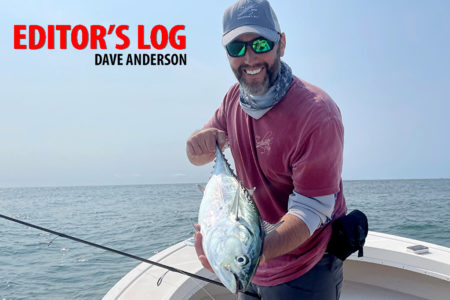In June, U.S. Secretary of Interior Ryan Zinke did a four-day trip across the Northeast while announcing $1.1 billion in annual funding for state wildlife agencies from revenues generated by the Pittman-Robertson Wildlife Restoration and Dingell-Johnson Sport Fish Restoration acts.
“For nearly eight decades, the nation’s hunters and anglers have generated billions of dollars to protect wildlife and habitat simply by purchasing items that help them engage in the outdoor activities they enjoy,” Zinke said. “Their support has helped state wildlife agencies protect our country’s environmental legacy for future generations of hunters, fishers, recreationalists and conservationists.” The funds distributed by the U.S. Fish and Wildlife Service are derived from excise taxes paid on firearms, ammunition, sportfishing tackle, boat engines and small engine fuel. Funds are reallocated based on each state’s geographic size and the total number of licensed anglers. In a follow-up report appearing nationally in The Fishing Wire, actual funding dedicated towards the Northeast region to state fisheries projects, boating access or aquatic education for this cycle breaks down as follows:
New Hampshire – $3,494,429 ; Connecticut – $3,494,429; Rhode Island – $3,494,429
To be clear, each of these New England coastal states has a saltwater fishing license; so do Delaware and Maryland, who will also each receive the sane $3,494,429 through the Sport Fish Restoration Funds for this cycle. And do you know how much New Jersey – a state without a marine fishing license – will receive in Sport Fish Restoration Funding? Same amount, $3,494,429. If you think back to the free vs. fee debate, license proponents in New Jersey pledged a great windfall in federal Sport Fish funds; no doubt the same pitch that had New England and DELAMARVA anglers swinging for the fiscal fences. In fact, just last year an editorial in a national fishing magazine based near Walt Disney World blasted New Jersey for missing out on the bureaucratic pot of gold available when anglers pay a fee to fish.
For the record, New York (also a free saltwater fishing state) received twice as much as their licensed neighbors, getting $7,789,942 in Sport Fish Restoration Funding. Despite the obvious pyramid scheme argument that a willingness to pay first will reap huge federal dividends later, the actual formula for funding distribution is more heavily influenced by geographic area than willingness to pay; in other words, size really does matter. Bernie Madoff would be proud! All this is not to say funding for state fish and wildlife isn’t important; looking at Delaware—the second smallest state in the nation—they seem to have a pretty robust mechanism for funding state waters. Last year, Delaware Governor Jack Markell signed legislation sponsored by republican legislators Sen. Gerald Hocker and Representatives Ronald Gray and Ruth Briggs King to allocate increased revenue from boat registrations to a newly-created Waterway Management Fund exclusively for Delaware’s waterway management operations.
On the other hand, New Jersey’s marine fisheries division in particular has been running on fumes for years. In fact, back in February Governor Chris Christie’s final budget cut funding for the NJDEP by about $2.3 million for fiscal year 2018, a total appropriation of just over $274 million. Of that amount, a scant $2.34 million was set to be allocated by NJDEP for marine fisheries, the same amount allotted in 2017 and 2016.
In a rather surprising turnabout of good news out of Trenton, the Cape May legislative team of Sen. Jeff Van Drew and Assembly reps Bob Andrzejczak and Bruce Land offered a budget resolution to increase funding for marine fisheries by an additional $1.2 million. Thanks in part to an email alert from the Recreational Fishing Alliance (RFA) leading to a phone campaign by interested New Jersey anglers, the budget resolution was approved and accepted by the Senate Budget and Appropriations Committee as well as the Assembly Budget Committee chaired respectively by Sen. Paul Sarlo and Assemblyman Gary Schaer.
Lost in the Fourth of July budgetary nightmare and holiday park closure was the successful passage of increased marine fisheries funding by South Jersey legislators, with support from Senate President Steve Sweeney of Gloucester County.
How about that, New Jersey’s marine division finally got a well-deserved raise, and we didn’t have to build (or invest in) pyramids to get it done!




